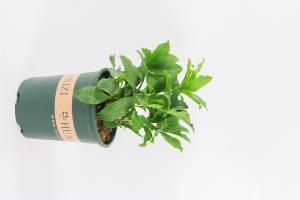Is Pool Salt Water Bad for Plants?
Swimming pools are a great way to relax and have fun during the summer season. However, the chemicals used to keep the pool water clean and safe for swimming can have adverse effects on plants. Pool saltwater is a popular alternative to traditional chlorine treatments, but is it bad for plants? In this article, we explore the impact of pool saltwater on plants.
Understanding Pool Saltwater
Pool saltwater is simply water that has been treated with salt to produce a saline solution. The salt is added to the pool water and is then circulated through a salt generator, which converts the salt into chlorine using an electric current. The chlorine then sanitizes the water, killing harmful bacteria and pathogens. While pool saltwater is less harsh than traditional chlorine treatments, it still contains high levels of salt and chlorine, which can be problematic for some plants.
Potential Effects on Plants
If pool saltwater comes in contact with foliage or the root system of plants, it can cause damage. The high levels of salt and chlorine in the water can lead to dehydration and disturbance of the water balance in plants, affecting their growth and development. Salt can also accumulate in the soil, making it difficult for plants to absorb necessary nutrients and water. As a result, plants may become stunted, develop yellow leaves, or die.
Protecting Plants from Pool Saltwater
If you have plants near your pool, there are several steps you can take to protect them from the harmful effects of pool saltwater. One option is to install a barrier to prevent contact between the water and plants. This could be a fence, a retaining wall, or a raised flower bed. Another option is to choose salt-tolerant plants that can withstand exposure to saltwater. These include succulents, cacti, and some native plant species.
Conclusion
While pool saltwater can be a great alternative to traditional chlorine treatments in pools, it is important to consider its impact on plants. The high levels of salt and chlorine in the water can lead to plant damage and death. Taking the necessary precautions, such as installing a barrier or choosing salt-tolerant plants, will help protect your plants and ensure they thrive in their environment.

 how many times do yo...
how many times do yo... how many planted tre...
how many planted tre... how many pine trees ...
how many pine trees ... how many pecan trees...
how many pecan trees... how many plants comp...
how many plants comp... how many plants can ...
how many plants can ... how many plants and ...
how many plants and ... how many pepper plan...
how many pepper plan...































